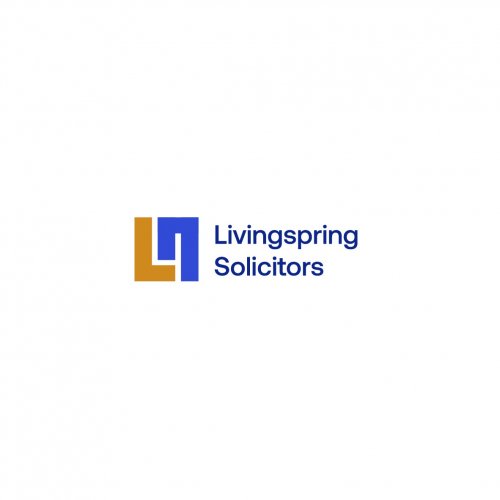Best Sanctions & Export Controls Lawyers in Calabar
Share your needs with us, get contacted by law firms.
Free. Takes 2 min.
List of the best lawyers in Calabar, Nigeria
About Sanctions & Export Controls Law in Calabar, Nigeria
Sanctions and Export Controls law is a critical aspect of doing business and engaging in trade in Calabar, Nigeria. These legal frameworks are put in place to regulate, restrict, or prohibit certain exports, re-exports, or transfer of goods, technology, services, and financial transactions. Sanctions are typically imposed to maintain national and international security, fulfill international obligations, or respond to political developments. Export Controls, on the other hand, are set to ensure that sensitive goods, dual-use items, and technology do not fall into the wrong hands or violate international treaties. In Calabar, which is an important commercial hub and a port city, understanding these laws is crucial for businesses, traders, shipping companies, and individuals involved in international trade.
Why You May Need a Lawyer
Navigating the complexities of Sanctions and Export Controls can be challenging without specialized legal support. You may need a lawyer for various reasons, including:
- You are involved in import or export activities and want to ensure full compliance with Nigerian and international regulations.
- Your business has been notified of possible violations of sanctions or export control laws by authorities.
- You have been contacted by international partners about compliance concerns or due diligence inquiries.
- You are dealing with frozen assets or blocked transactions due to sanctions-related issues.
- You need to understand the impact of newly imposed regulations or international sanctions on your operations.
- You are seeking guidance on securing required export permits or licenses.
- You have been approached by law enforcement or need assistance with a legal audit or investigation.
- You wish to challenge or appeal a government enforcement action related to sanctions or export controls.
Local Laws Overview
In Calabar, Sanctions and Export Controls are governed by a range of Nigerian statutes, regulations, and international agreements. Key aspects include:
- Nigerian Export Prohibition Act: Prohibits the export of certain items listed by the government, including cultural artifacts and endangered wildlife products.
- Foreign Asset Control Regulations: Enforce restrictions on transactions involving entities or countries under national or international sanctions.
- Customs and Excise Management Act: Regulates import and export procedures, including required documentation and inspections at ports like the Calabar seaport.
- Money Laundering (Prohibition) Act: Imposes reporting obligations on transactions and may impact cross-border transfers related to sanctioned individuals or entities.
- Compliance with United Nations and African Union Sanctions: Nigeria implements sanctions adopted by these international bodies, affecting trade and financial activities with specified countries or persons.
- Licensing Requirements: Certain goods, technology, and dual-use items require export licenses from the relevant Nigerian authorities.
Violations can result in severe penalties, including asset seizure, fines, loss of export privileges, and even criminal prosecution. Businesses and individuals operating in Calabar must stay up-to-date and compliant to reduce risks.
Frequently Asked Questions
What are sanctions in the context of Nigerian law?
Sanctions are legal measures imposed by the Nigerian government or international bodies that restrict or prohibit trade, financial transactions, or other activities with targeted countries, individuals, or groups for national security or foreign policy reasons.
What are export controls?
Export controls are laws and regulations that govern the export, re-export, or transfer of certain goods, technology, or services to foreign destinations or entities, especially those with potential military, security, or dual-use applications.
Do sanctions and export controls apply to individuals as well as businesses?
Yes, both individuals and businesses can be subject to sanctions and export controls. Individuals may face legal consequences if found violating these laws, including being listed for targeted sanctions themselves.
What are dual-use goods?
Dual-use goods are items, software, or technology that can be used for both civilian and military purposes. They are subject to export control regulations because of the risk of being used in activities that threaten national or international security.
Do I need a license to export certain products from Calabar?
Yes, a license is required to export specific goods, particularly items on restricted lists, including technologies, chemicals, and equipment that could have military or security applications.
What happens if I unknowingly violate sanctions or export controls?
Ignorance of the law is not a defense. Unintentional violations can still lead to investigations, fines, and other penalties. It is important to consult with a legal professional to ensure compliance.
What authorities regulate sanctions and export controls in Nigeria?
Key authorities include the Nigerian Customs Service, Central Bank of Nigeria, Ministry of Foreign Affairs, and the National Export Promotion Council. These agencies ensure enforcement and compliance with relevant laws and international obligations.
How can I check if a country or company is under sanctions?
You can verify sanctions status through official government publications or by consulting with legal practitioners or compliance specialists who can access up-to-date lists from Nigerian or international authorities.
Are there local restrictions specific to Calabar?
While the laws are national, certain procedures at the Calabar seaport and within Cross River State may have local enforcement nuances. It is advisable to consult a lawyer familiar with Calabar’s regulatory environment.
How can I challenge a sanctions designation or enforcement action?
A lawyer can guide you through the process, which may involve submitting official appeals or requests for review, presenting evidence, and liaising with government agencies or the courts.
Additional Resources
If you need further information or assistance related to Sanctions and Export Controls in Calabar, consider reaching out to the following:
- Nigerian Customs Service - For inquiries on import-export restrictions and compliance procedures.
- Central Bank of Nigeria - For information regarding financial sanctions and blocked transactions.
- National Agency for Food and Drug Administration and Control (NAFDAC) - For export controls on food, drugs, and related items.
- Nigerian Export Promotion Council - Helpful for exporters needing guidance on legal requirements.
- Ministry of Foreign Affairs - For details on international sanctions and government policy.
- Local law firms in Calabar specializing in commercial law and trade compliance.
Next Steps
If you require legal advice or representation in matters related to Sanctions and Export Controls in Calabar, Nigeria, consider the following actions:
- Gather all relevant documentation, such as contracts, shipping records, correspondence, and official notices.
- Schedule a consultation with a local lawyer experienced in trade compliance and sanctions law.
- Clearly explain your situation and any concerns about possible violations or compliance issues.
- Ask about compliance programs, licensing requirements, and strategies for mitigating legal risks.
- Follow your lawyer’s guidance on addressing existing issues, communicating with authorities, and implementing best practices for ongoing trade activities.
Understanding and complying with Sanctions and Export Controls law is a necessity for any individual or business engaged in international trade in Calabar. Professional legal guidance is the best way to protect your interests and avoid costly mistakes.
Lawzana helps you find the best lawyers and law firms in Calabar through a curated and pre-screened list of qualified legal professionals. Our platform offers rankings and detailed profiles of attorneys and law firms, allowing you to compare based on practice areas, including Sanctions & Export Controls, experience, and client feedback.
Each profile includes a description of the firm's areas of practice, client reviews, team members and partners, year of establishment, spoken languages, office locations, contact information, social media presence, and any published articles or resources. Most firms on our platform speak English and are experienced in both local and international legal matters.
Get a quote from top-rated law firms in Calabar, Nigeria — quickly, securely, and without unnecessary hassle.
Disclaimer:
The information provided on this page is for general informational purposes only and does not constitute legal advice. While we strive to ensure the accuracy and relevance of the content, legal information may change over time, and interpretations of the law can vary. You should always consult with a qualified legal professional for advice specific to your situation.
We disclaim all liability for actions taken or not taken based on the content of this page. If you believe any information is incorrect or outdated, please contact us, and we will review and update it where appropriate.











